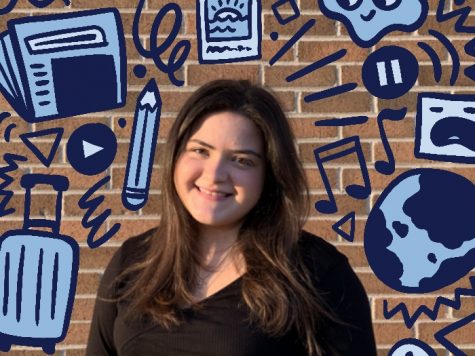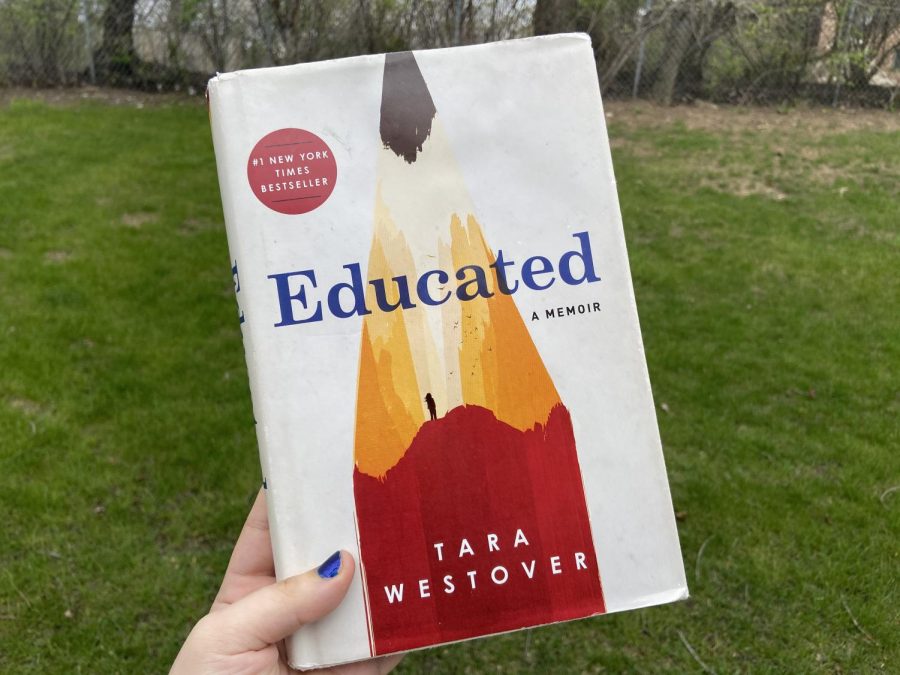Tara Westover’s ‘Educated’ redefines what an education is
Tara Westover’s memoir “Educated” offers a new perspective on what it truly means to be educated.
In the era of remote learning, where many students are finding it difficult to focus on school work, much less teach themselves new material, many are now struggling to understand what exactly learning is when it isn’t the traditional format they’re accustomed to. In Tara Westover’s 2018 memoir “Educated”, Westover attempts to answer a question that takes on a new potency as learners begin to navigate this new reality: what exactly constitutes an education? Furthermore, what lengths should you go to to attain one?
Growing up on the side of a mountain in rural Idaho, Westover’s childhood was anarchic. In a family of orthodox Mormons, Westover’s father became a prophet, preaching preparation for the “end of days” and radical anti-establishment-ism which bans his children from having birth certificates or visiting the hospital. Most significantly, it barrs them from a formal education.
Throughout her childhood, Westover is unaware of much more than her family’s way of life. Due to this, the abnormality of it is lost on her, and she remains blissfully unaware that others do not store rations for the apocalypse, that others do not experience the excessive amount of physical turmoil she and her family do. Between a brother who almost burns himself alive, an all-family car crash in the middle of a snowstorm and Westover herself almost falling off of a wild horse, there is a level of mayhem that is unmatched by any other family I’ve read about.
The layer that I most enjoyed in Educated was Westover’s examinations of her family dynamic. There is a willful instability to her family members actions and their regards for her that is blood-curdling and exasperating. In particular, Westover’s relationship with her abusive brother is frightening and enraging to examine as Westover herself struggles to make sense of it and to understand why her parents do nothing to help her.
Eventually Westover realizes that there is a world beyond the mountainside she calls home, though her willingness to step out into it is more of a slow-burn than an all-encompassing decision. When one of her brothers home-schools his way into Brigham Young University, Westover realizes she wants to attend college too. After teaching herself enough mathematics, science and grammar to take the ACT, Westover is shocked by things she has never learned of before her college lectures, such as the Holocaust and the Civil Rights Movement.
This begins her path to a traditional education, but more effectively, her first foray into a world beyond her father’s beliefs and beyond the world she had always belonged to.
Split into three parts, the novel covers Westover’s childhood, her college education and her path to earning a PhD from Cambridge University. Throughout the novel, Westover struggles with balancing the loyalty she feels for her family and what she finds beyond the mountain, wondering if those two realities can coexist in her world.
But as her family continues to show her, Westover can only have one or the other. Essentially, to leave their way of life is to commit herself to eternal damnation, a decision which her family cannot support. Tensions arise between Westover and the members of her family the further she goes from their home, and consequently, from their beliefs.
“Educated” is not simply a young woman’s fight to go to school. Instead, Westover’s memoir is a heart wrenching tale of her struggle for self-invention, independence and honesty that comes at the cost of her family.
In “Educated” readers will find a nontraditional but no less accurate definition of what an education truly is: a finding, defining and invention of one’s self, one’s beliefs, one’s wants and dreams.
For me, it was refreshing to see this new take on education. Rather than focusing solely on her transition from rural Idaho to bustling college campus’s, Westover chooses to closely examine the trials she is facing within herself. Instead of romanticizing Brigham Young University as the place where she finally felt at peace,as is often done in stories similar in nature to Westover’s, she chooses to expose the pain and confusion that came with this transition frankly and without pretenses.
Therein lies the originality of this memoir. Westover’s voice is matter-of-fact, taking no pauses to gasp or agonize over it’s own heartbreaking strange realities. She doesn’t encourage you to feel one way or another about her experience, she lets the stories speak for themselves.
And boy, do they have a lot to say.
Told with a precise word choice, raw storytelling capability, vivid imagery and uncanny vulnerability, Westover’s story is more than just the telling of what life is like for some abnormal Americans, although it may appear to be at first glance. In truth, it is a deep-dive into what it means to grow-up and to learn, and the grief that can come with it.
Westover’s commencement of conventional schooling is merely the catalyst for her real education: self discovery.
I highly recommend Educated for anyone who wants to be immersed in captivating storytelling while simultaneously adjusting their perspectives on what an education can be. In times where many can feel the burden of their education heavily, this struggle to learn is humbling and eye-opening to the fact that an education in school is the foundation on which our real education can take place. I rate this book five out of five stars for it’s eloquence and meaningfulness.



